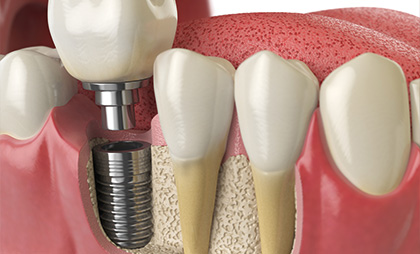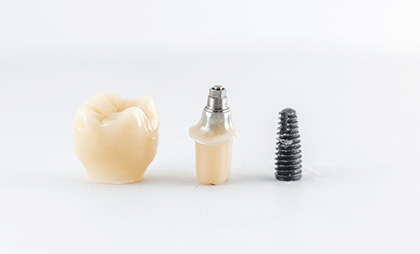What Is The Process Of Dental Implants
Dental implants have become more popular recently. That is due to the advancement of cosmetic medicine, improved operation techniques, and the materials used in the implant. So, the turnout has become eminent for people who want to restore their teeth, oral hygiene, and bright smiles.
Dental implant surgeries are among the most requested types of dental procedures. They are a better solution than removable dentures and feel more like natural teeth. The dental implant process has no specific limit on implanted artificial teeth.
The type of implants characterizes the process. One can implant one or many teeth, with cost differences. Consult your dentist to decide the most suitable option for you. The dentist replaces the missing teeth with implants surgically implanted into the jawbones. The dentist then covers the implants with crowns. These crowns are chosen to suit and naturally fit the teeth in the mouth.
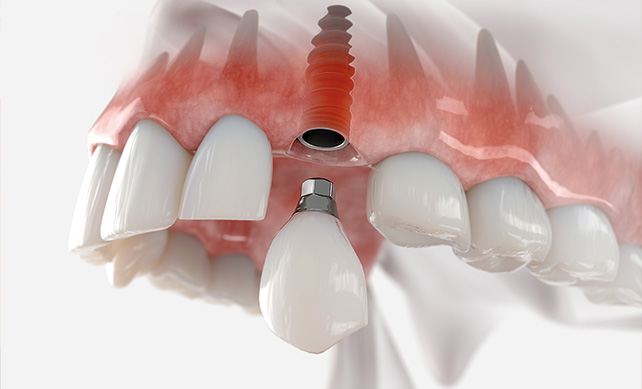
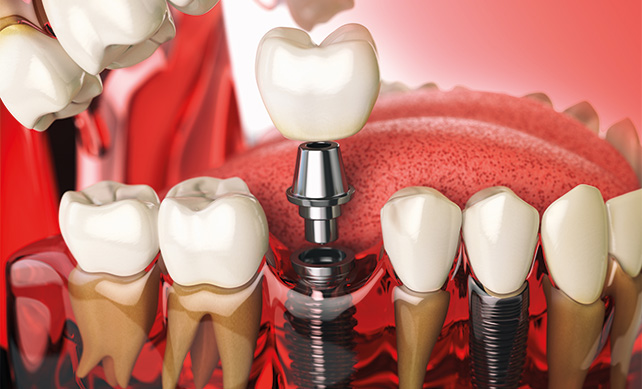
Candidates For Dental Implants
The dentist begins a complete examination of the patient as much as any routine and periodic examination. The dentist examines the medical history of the patient. This is to make sure there are no chronic diseases that would prevent the patient from having dental implants. Among the conditions that must meet for you to be a candidate for dental implants are:
- Those who have lost one or more teeth and want to implant alternative artificial tooth/teeth for cosmetic or medical reasons.
- The patient undergoing the operation must be free from some diseases that affect the bones, such as diabetes and advanced osteoporosis.
- The patient undergoing dental implants must have enough bone density to succeed in dental implants. If he does not, a bone grafting procedure may be followed.
- Patients who maintain their oral hygiene and wish to receive dental implants must have good oral health.
- The patient undergoing dental implants should not suffer from chronic high blood pressure.
- Those who are not heavy smokers (those who smoke more than 10 cigarettes per day are considered heavy smokers).
It is worth noting; If the patient does not have the bone density necessary to undergo dental implants, a bone grafting procedure can be followed for him as a better solution for his condition.
Pre- Dental Implants Instructions
The patient undergoing a dental implant surgery must follow some instructions and guidelines before the operation to have successful dental implants. Such instructions are as follows:
- Since the dental implant procedure is a micro-surgical operation, choose an oral surgeon with experience, efficiency, and a good reputation.
- Choose a dental center known for its good treatment services offered before and after the operation.
- Maintain routine hygiene of teeth and gums as a patient undergoing dental implants.
- Refrain from having alcohol for a week before the operation.
- Refrain from smoking for at least a week before the surgery.
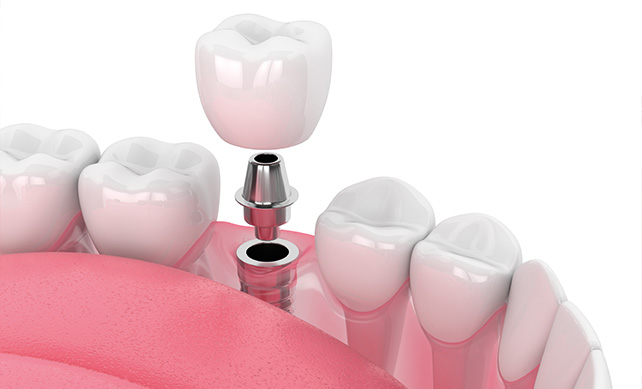
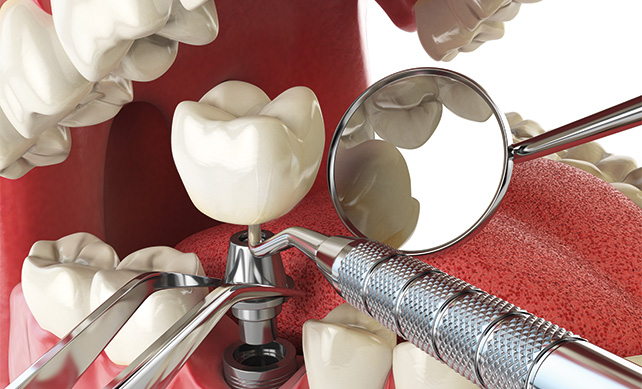
Stages Of Dental Implants
Dental implants are conducted in several routine stages:
- The dentist prepares the specified place for implantation. Then, he places the implants made of pure titanium in the jawbone in the missing tooth area as tooth roots.
- The jawbone and the implant are healed in what is called bone fusion. That takes six months for the upper jaw and three months for the lower jaw.
- The dentist prepares the final composition of dental implants. This phase includes several sessions, where the composition is prepared from oral prints. Till the permanent crowns are ready, the dentist places temporary crowns on the implants. Then, he installs the permanent ones on the implant and fully replaces the tooth that is missing.
- Dental implants are accompanied by a slight pain that can be eased with ordinary painkillers. It takes about half an hour to implant a tooth. The implant success rate is 90% for the upper jaw and 95% for the lower jaw. The reason for that is it is more difficult to attach the implants to the upper jawbones.
Implanted teeth can last for more than 20 years. However, the longevity of the implants depends on how well the patient takes care of their oral health and hygiene daily.
Post- Dental Implants Instructions
In order to get the desired results from the dental implant procedure, there are several instructions that the patients must follow. Some of these instructions are as follows:
- Refrain from hot drinks and food until the effect of local anesthesia wears off.
- Drink a lot of water.
- Refrain from smoking for 5 days after the surgery.
- For the first 24 to 48 hours after surgery, apply ice packs to the surgical site (cheeks, side of face). Apply the packs for 20 minutes at 10-minute intervals.
- Do not disturb the surgery area with your fingers or tongue.
- Take care of dental cleaning and pay regular care to the teeth and their cleanliness.
- Clean the gum tissue, and do not leave any food left over on them.
- Undergo a dental check-up with your dental specialist every six months.
- Work on reducing or abstaining from alcohol and smoking to maintain the implants.
Swellings, fever, sore throat, and slight earache after the procedure are expected. If you want your implants to be long-term solutions and support the implant, you must adhere to these suggestions.


